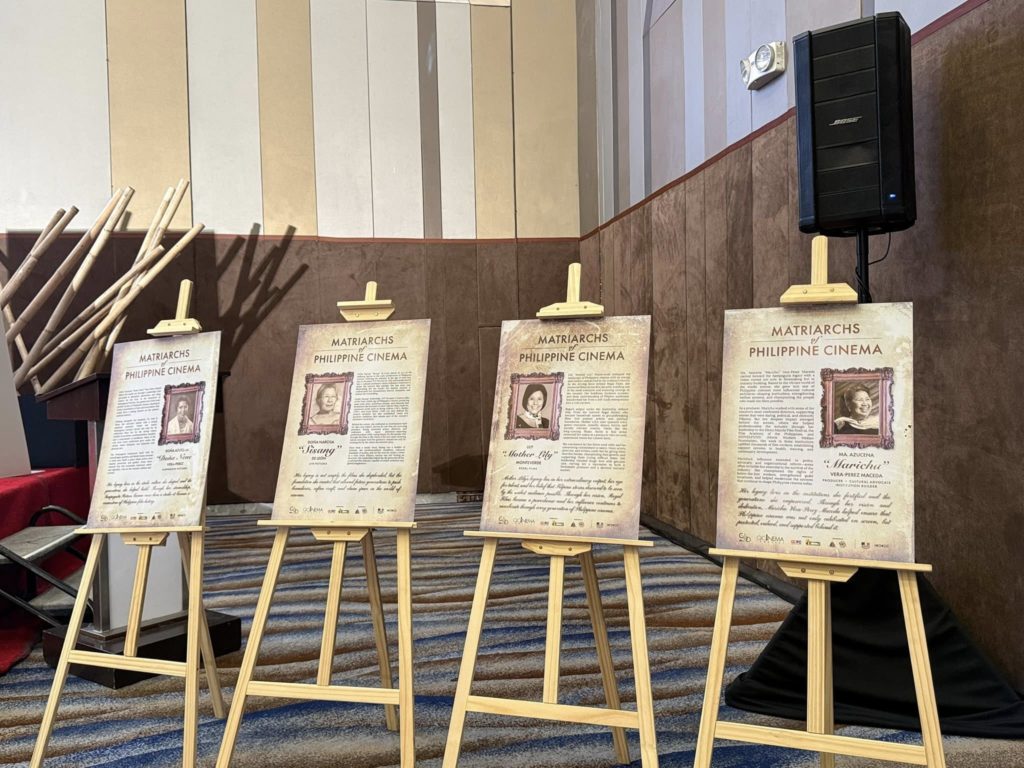QCinema Industry Creative Industries Day returned on November 19 at Novotel Monet with a program centered on gender equality and the shifting role of women in Asian cinema. Opening the event, Liza Diño described Quezon City’s transition into what she called HER CITY, a framework reflected in the HER CITY Manifesto, which panelists signed as a commitment to safer and more inclusive workplaces in the creative industries.
Alongside the discussions, the QC Film Market continued with steady activity. Filmmakers moved through exhibitors including Terminal Six Post, Barebones, Inc., Narra Post-Production Studios, and Mocha Chai Laboratories, seeking partnerships and production support within the region’s growing film ecosystem.

A panel led by filmmaker Monster Jimenez brought together cinematographer Tey Clamor, French producer Dominique Welinski, and Vietnam’s Nguyen Phan Linh Dan. Nguyen Phan, noted as the only female cinematographer in Vietnam, described cultural beliefs that limit women’s access to technical roles. Clamor recalled similar assumptions in the Philippines, where women are often kept from heavier equipment on set. The conversation underscored the need for collaborative networks that can help shift long-standing norms in film production.
A later panel moderated by Asian cinema specialist Jeremy Segay gathered Diño, Jakarta Film Commission’s Vivian Idris, and the Asian Film Alliance Network’s Lorna Tee. Their discussion focused on film policy, sustainability, and the pace of cultural change in male-dominated institutions. Diño pointed to the reluctance to confront entrenched habits, saying it is easier to accept that “it is what it is”, while urging the current generation to reshape the decades ahead. Idris called for bringing more creatives into policymaking. Tee emphasized expanding representation beyond gender to include other marginalized groups. Their shared advice to those facing structural barriers: “Take up space”.
Actresses Qymira, Iza Calzado, and Kaity Nguyen later examined how women in film navigate expectations on and off screen, reflecting on efforts to reclaim narratives long told from male points of view.
Women programmers from across Asia followed with a discussion on film programming, stressing how small curatorial decisions influence global visibility and noting the rise of profit-driven “feminist” content with little substance.

The program closed with Diño and CNC’s Agnès Toullieux presenting “Gender Parity in Cinema,” and with a tribute to pioneering women including Doña Sisang, Doña Nene, Mother Lily, and Marichu Vera-Perez Maceda, whose work shaped Quezon City’s film history.
Stay locked in to PalabasTayo.com for your daily dose of film, TV, music, art, fashion, food, and all things lifestyle and entertainment like this. You may also follow and subscribe to our social media accounts: Facebook, YouTube, Instagram, TikTok, X, and Kumu.






















